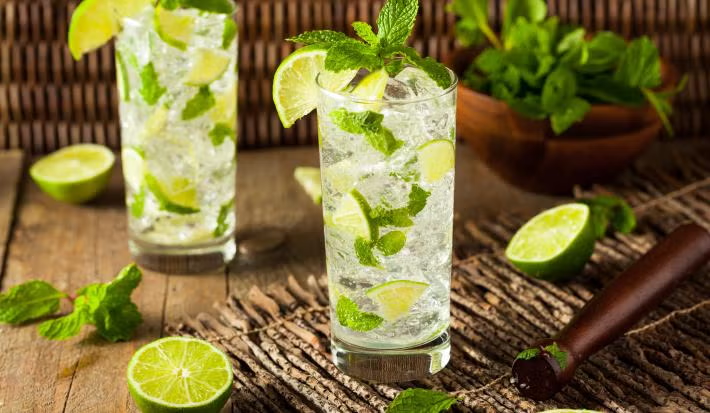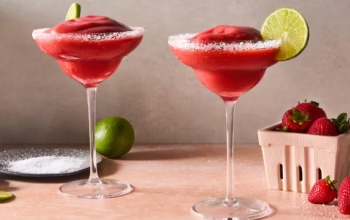Few cocktails can match the refreshing vibrancy of a well-crafted Mojito. This classic Cuban drink, with its combination of mint, lime, rum, sugar, and sparkling water, is a symbol of tropical relaxation and elegant simplicity. But as with all great classics, mastering the Mojito is as much about respecting its roots as it is about perfecting the technique.
In this comprehensive guide, you’ll discover not only how to make the perfect Mojito but also its cultural significance, ingredient nuances, flavor balancing, and creative variations.
A Brief History of the Mojito
The Mojito’s origin traces back to 16th-century Cuba, with some accounts connecting it to a medicinal tonic known as “El Draque,” named after English sea captain Sir Francis Drake. It was originally made with aguardiente (a crude predecessor to rum), lime, sugar, and mint — all believed to treat ailments.
By the 19th century, rum had replaced aguardiente, and the drink evolved into the Mojito we know today. It gained global popularity in the 20th century, especially after Ernest Hemingway, a frequent visitor to Havana’s La Bodeguita del Medio, famously declared it one of his favorite drinks.
Flavor Profile
What makes the Mojito so appealing is its balanced flavor:
- The sweetness of sugar
- The acidity of fresh lime juice
- The herbaceous freshness of mint
- The boozy punch of white rum
- The effervescence of soda water
When made properly, it’s light, thirst-quenching, and invigorating without being overwhelmingly alcoholic.
Classic Mojito Recipe (Single Serving)
Ingredients:
- 2 oz (60 ml) white rum – preferably Cuban rum like Havana Club
- 1 oz (30 ml) fresh lime juice – about half a lime
- 2 teaspoons granulated sugar (or 0.5 oz simple syrup)
- 6–8 fresh mint leaves – plus more for garnish
- Soda water – to top off
- Ice cubes or crushed ice
- Lime wedge – for garnish
Instructions:
Step 1: Muddle the Mint
Place the mint leaves and sugar (or simple syrup) into a sturdy highball glass. Use a muddler or the back of a spoon to gently press the mint. Don’t shred it — you’re aiming to release essential oils, not make mint salad.
Pro Tip: Muddling too aggressively can make the mint taste bitter. Gentle pressure is key.
Step 2: Add Lime Juice
Pour in the freshly squeezed lime juice and give the mixture a quick stir to dissolve the sugar and blend flavors.
Step 3: Add Rum and Ice
Pour in the white rum, then fill the glass with ice — either crushed or cubed, depending on your preference. Crushed ice chills the drink faster and looks more traditional, but cubed ice melts slower and dilutes less.
Step 4: Top with Soda Water
Gently top off with soda water (about 2–3 oz or to taste). Stir lightly to integrate the ingredients.
Step 5: Garnish and Serve
Garnish with a sprig of mint and a lime wedge. Serve with a straw or swizzle stick.
Ingredient Breakdown and Tips
White Rum
The soul of the Mojito. Choose a clean, light-bodied rum. Cuban rums are traditional and offer a subtle sweetness that complements the lime and mint.
- Good choices: Havana Club Añejo 3 Años, Bacardi Superior, or Plantation 3 Stars.
Mint
Fresh mint is essential. The variety typically used is Spearmint, which has a sweeter, milder flavor compared to peppermint.
- Always use fresh, vibrant green mint. Avoid wilted or bruised leaves.
- Clap the mint between your hands before garnishing to release aroma.
Sugar
Granulated sugar gives a slight texture, while simple syrup (equal parts sugar and water) dissolves more easily.
- If using raw or demerara sugar, it can add a hint of molasses flavor, which pairs well with rum.
Lime
Use only fresh lime juice — never bottled. Roll the lime on the counter before cutting to release more juice.
Soda Water
This adds the light fizz that makes the Mojito so refreshing. Use unflavored, chilled soda water, and don’t over-pour — it should complement, not dilute.
Common Mojito Mistakes (and How to Avoid Them)
- Over-muddling mint: Bruising the leaves releases bitter chlorophyll.
- Too much soda water: A Mojito isn’t a rum soda. Keep the flavors concentrated.
- Old lime juice: Freshness is key to the citrus punch.
- Not enough ice: Ice controls dilution and temperature. Fill the glass to the top.
- Using flavored rums: These can overpower the balance. Stick with unflavored rum for the classic version.
Popular Mojito Variations
Once you’ve mastered the original, try these creative twists:
1. Strawberry Mojito
Add a few sliced strawberries during muddling for a fruitier, vibrant flavor.
2. Coconut Mojito
Use coconut rum instead of white rum and add a splash of coconut milk for a creamy texture.
3. Spicy Mojito
Add a slice of fresh jalapeño or muddle with a dash of chili syrup for a spicy kick.
4. Pineapple Mojito
Replace soda water with pineapple juice and add pineapple chunks for a tropical twist.
5. Cucumber Mojito
Muddle a few cucumber slices with the mint for a crisp, cooling version.
Serving Suggestions and Pairings
Mojitos are best served cold and fresh, preferably outdoors on a sunny day. They pair wonderfully with light, spicy, or tropical foods, such as:
- Grilled shrimp or fish tacos
- Cuban sandwiches
- Fresh ceviche
- Mango salsa and chips
- Vietnamese spring rolls
For parties, Mojitos can be pre-batched by mixing everything except the soda water. Add the fizz just before serving to retain the bubbles.



